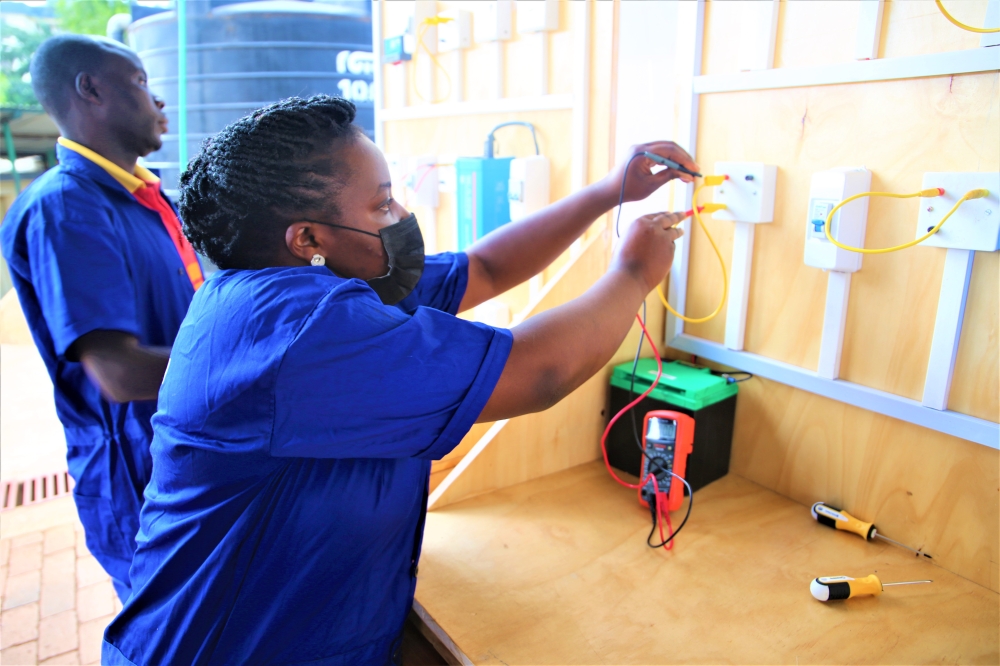

Up to 200,000 Rwandan youth are expected to benefit from a skills development and employment programme, according to officials.
The $200 million World Bank-funded Priority Skills for Growth and Youth Empowerment programme will be spearheaded by the Ministry of Education (MINEDUC).
ALSO READ: Five key hindrances to skills, labour market match in Rwanda
It targets young people, including students and those not in education or employment. Under the programme, the beneficiaries will gain with market-driven skills, essential to support the country’s development, according to officials at the Ministry.
"The programme is designed to address Rwanda’s labour market demands while enhancing institutional capacity to support the country’s long-term development vision,” Samuel Bigirumwami, the coordinator of Single Project Implementation Unit (SPIU) at MINEDUC, said in an interview with The New Times.
He added that the programme will focus on providing practical technical training in such trades as construction, plumbing, and IT, including software development and cybersecurity.
ALSO READ: New multi-billion printing house to help address textbook shortage
About 40 percent of the beneficiaries are expected to be women, a move aimed at addressing gender imbalances in fields such as engineering and construction, Bigirumwami said.
There are an estimated one million youth not in education or employment in Rwanda.
"In addition to these technical skills, participants will also receive entrepreneurship training, which will help them start and manage their own businesses,” he said.
Digital literacy, including data analysis and digital marketing, will also be a core part of the curriculum, ensuring that the youth are prepared for the increasingly digital global economy.
Alongside technical training, soft skills such as communication, teamwork, and leadership will be emphasised to help participants be able to navigate various work environment.
"We are not only focusing on hard skills but also ensuring that youth develop the critical soft skills needed to thrive in any professional environment,” Bigirumwami said.
Additionally, it will provide access to Technical and Vocational Education and Training (TVET) programs and opportunities in high-demand industries.
The initiative will also provide the students with laptops to ensure they have the technological tools necessary for skills acquisition.
Strengthening private sector linkages
The private sector plays a critical role in ensuring that Rwanda’s training programmes are aligned with current and future market demands. Through platforms such as the Sector Skills Councils (SSCs), the private sector communicates its workforce needs, which helps guide the development of training programs.
According to Bigirumwami, "This collaboration ensures that the courses offered are co-created with input from industries, making them relevant to Rwanda's economic growth goals."
This public-private collaboration is particularly important in sectors like green technology and ICT, where demand for skilled labour is increasing. By promoting collaboration between training institutions, the government, and the private sector, the programme will help create a workforce that is ready to meet the demands of emerging industries.
The programme is benchmarked against Rwanda’s Vision 2050 goals, which aims to transform the country into a high-income, knowledge-based economy. By equipping the youth with market-driven skills and promoting entrepreneurship, the programme will help create a skilled workforce capable of driving Rwanda’s economic transformation.
Moreover, the programme aligns with global Sustainable Development Goals (SDGs), particularly those related to decent work and quality education.
By preparing young people for the rapid technological advancements shaping the global economy, the programme aims to make Rwanda’s youth more resilient and adaptable in an ever-changing world, Bigirumwami said.


